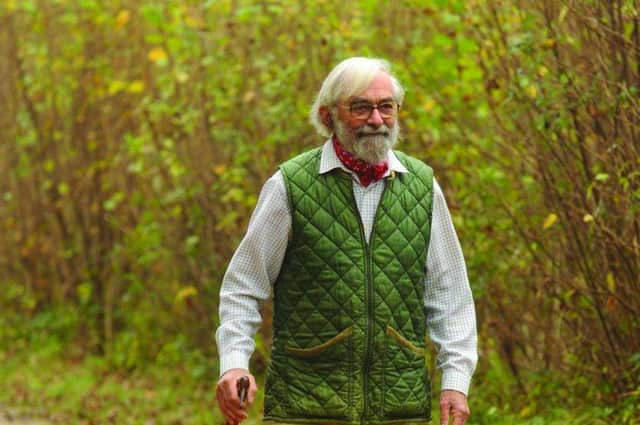The last book by the much-loved Sussex writer and nature expert Richard Williamson


For 57 years, Richard shared his love of flora and fauna and his favourite walking routes with readers, with his first column published on December 4, 1964. He passed away in May last year. His final book A Shadow in the Clouds has now been published by the Henry Williamson Society (under their imprint Skirr Books). Richard was the president of the society until his death.
Richard’s wife Anne Williamson said: “The book tells the tale of a journey Richard made to Afghanistan in 1972 on behalf of the BBC to look for the bighorn Marco Polo sheep and the extremely elusive snow leopard. It was some time before we knew that the BBC would not make the actual film that was planned. They couldn't. Afghanistan went into a coup the following spring and then the Russians moved in. It was almost a Paradise Lost. But Richard had been writing the book on and off for several years and after he retired (as warden of Kingley Vale) he continued with it. He finished writing it during the Covid time but by then he was already terminally ill though nobody other than us knew that. I had to type it up for him. He never used a computer but he did finish it. I was trying to get it published by a mainstream publisher but it was just so complicated. The factors were his age and the fact that he was ill which meant that he couldn't do any publicity for it and so the mainstream publishers sadly were not interested but at least I did manage to get his book of poetry published while he was still with us. The poetry book came out in March last year and he was able to hold a copy and more or less read it. He then died on May 21 2022. He was very disappointed that the Aghanistan book had not been published. But my closest colleague at the Henry Williamson Society suggested to the committee that as a tribute to Richard they should publish it and it is just such a marvellous thing to have happened. They were very fond of Richard. He was their president from the beginning after Henry (his father) died.
Advertisement
Hide AdAdvertisement
Hide Ad“The book is available for sale at Kim's Bookshop, cost £9.50. People in the Henry Williamson Society who have already read it say it is unputdownable.”
The project was one very close to Richard's heart “because it had been such an incredible interlude in his life. He was always talking about it. He had grown up with the idea of the mountains and this creature, the snow leopard, living up there and as he was growing up, really not very much was known about the snow leopard by anybody and then suddenly he found that he was being paid to go off and do this project.”
The book tells the story of his journey in 1972 to the remote Wakhan area of eastern Afghanistan, just months before the Russian invasion. The book paints a picture of a now vanished world. Undertaken at less than a week’s notice at film-producer David Cobham’s request, Richard’s brief was to explore the possibilities of the BBC sending out a camera team to the area, liaising with a scientist already in the field, and to write a shooting script for a film about the Marco Polo sheep and the fabled snow leopard in the Pamir Mountains. He accompanied a small hunting party, the last of the season before the winter snows arrived, travelling first by truck, then horses, and finally yaks to reach their primitive camp where the cold and altitude sickness took its toll. Richard describes the privations and also the natural world around them.
Richard wrote: “This unexpected, almost accidental trip to the remote wilderness of the Wakhan gave me the chance to experience in some measure the hardships of the lives of the people who lived here. Above all it gave me the chance to see for myself what it was really like to watch animals and birds I had never thought to see. But I still had not achieved my real heart’s desire – to see the creature I most wanted – that elusive shadow of the clouds – the snow leopard.”